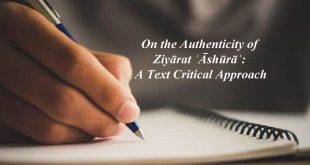The Master of Arts in Islamic Studies at Hamad bin Khalifa University of Qatar offers students a unique opportunity to enjoy a strong multidisciplinary and interdisciplinary graduate education across a range of core subjects, while also enabling them to pursue specialist study in one of a range of important areas within the field of modern Islamic scholarship.
Our modern world is shaped by remarkable developments in almost all aspects of life, including politics, socio-economic affairs, and gender relationships, in addition to biomedical and technological advancements. Besides their great benefits, these developments and advancements have also raised deep moral questions and challenges.
Individuals, societies, and professional communities are constantly addressing the moral questions and challenges that these developments raise. In the end, we need to make sense of our lives in the midst of profound change and to organize socio-political and financial activities in ways that are faithful to our “moral world.”
The first program of its kind worldwide, the Master of Arts (MA) in Applied Islamic Ethics addresses how Islam, as a world religion with a rich moral heritage, engages with and contributes to the global moral discourse. Its strong interdisciplinary character combines in-depth knowledge of both theoretical and applied ethics rooted in the Islamic tradition. The program is consistent with the Qatar National Vision 2030 of developing a knowledge-based society and also with HBKU’s mission to develop world-class interdisciplinary academic programs.
Graduates of this program will have the skills to continue their academic studies at the PhD level in the many fields covered in this program. They may also work in a professional environment by regulating ethical guidelines and policies in government and private institutions active in a wide range of areas, including biomedical sciences, engineering, business, politics, family, and human rights–in Muslim and Western contexts.
Program Focus
The MA in Applied Islamic Ethics is designed to equip students with the skills required to master the tools of theoretical ethics and to apply them to address leading-edge ethical dilemmas from the perspective of the rich Islamic ethical tradition.
The overall structure of the program is designed to balance two main aspects: ‘the academic aspect’ of Islamic ethics, through a scholarly approach rooted in the Islamic tradition; and the ‘applied aspect’, to improve students’ skills in addressing the vexing ethical dilemmas and questions that people face in contemporary times for the prospective market of professional work.
Graduates of this program will be able to:
- Provide a critical review of the main concepts, approaches, and theories of ethics in the Islamic tradition, as developed by various scholars and schools of thought throughout history.
- Compare and analyze how different disciplines approach ethical questions from various perspectives.
- Transfer the knowledge of theoretical ethics to practical and applied ethics by envisaging possible solutions for real-life problems and challenges.
- Conduct academic research which addresses current and future ethical challenges encountered by Qatar, other countries in the Gulf region, and worldwide.
- Demonstrate how insights rooted in the Islamic tradition can enrich the global deliberations on ethical challenges and dilemmas.
CurriculumA 36-credit degree program taught over 2 years that includes:A two-course Program Foundation in
- Islamic Thought
- Islamic Ethics
Two Program Core Courses in
- Research Methods
- Quranic and Hadith Studies
A choice of five different concentrations:
- Two of the concentrations are taught in Arabic
- Contemporary Fiqh
- Contemporary Quranic Studies
The other three concentrations are taught in English:
- Islamic Thought and Applied Ethics
- Comparative Religions
- Islamic Civilization and Societies
A nine-credit thesis in the area of each student’s concentration
Admission & Application Requirements
Applicants seeking admission to the Master of Arts in Islamic Studies should have a bachelor’s degree from a recognized institution. They must also have a strong undergraduate academic record. Applicants who wish to pursue the Contemporary Fiqh or Contemporary Quranic Studies concentration should have a bachelor’s degree in Sharia, Islamic Studies, or a related area.
Applicants who intend to pursue a concentration in Islamic Thought and Applied Ethics, Comparative Religions, or Islamic Civilization and Societies are required to take the IELTS or TOEFL exam in order to demonstrate their proficiency in English. Applicants can be exempt from this requirement if they meet one of the conditions listed below:
- The applicant completed their undergraduate studies at an institution in a country where English is the native language.
- The applicant provides an official letter from the university where they completed their undergraduate studies confirming that they obtained their degree from an institution where the medium of instruction is English (if not otherwise exempt).
- The applicants’ first language is English.
Applicants who intend to pursue a concentration in Contemporary Fiqh or Contemporary Quranic Studies must demonstrate proficiency in Arabic through previous studies (e.g. completing an undergraduate degree in which the language of instruction was Arabic or by completing a proficiency examination offered by CIS).
Program taught in:
English
 Ijtihad Network Being Wise and Faithful Muslim in the Contemporary World
Ijtihad Network Being Wise and Faithful Muslim in the Contemporary World
